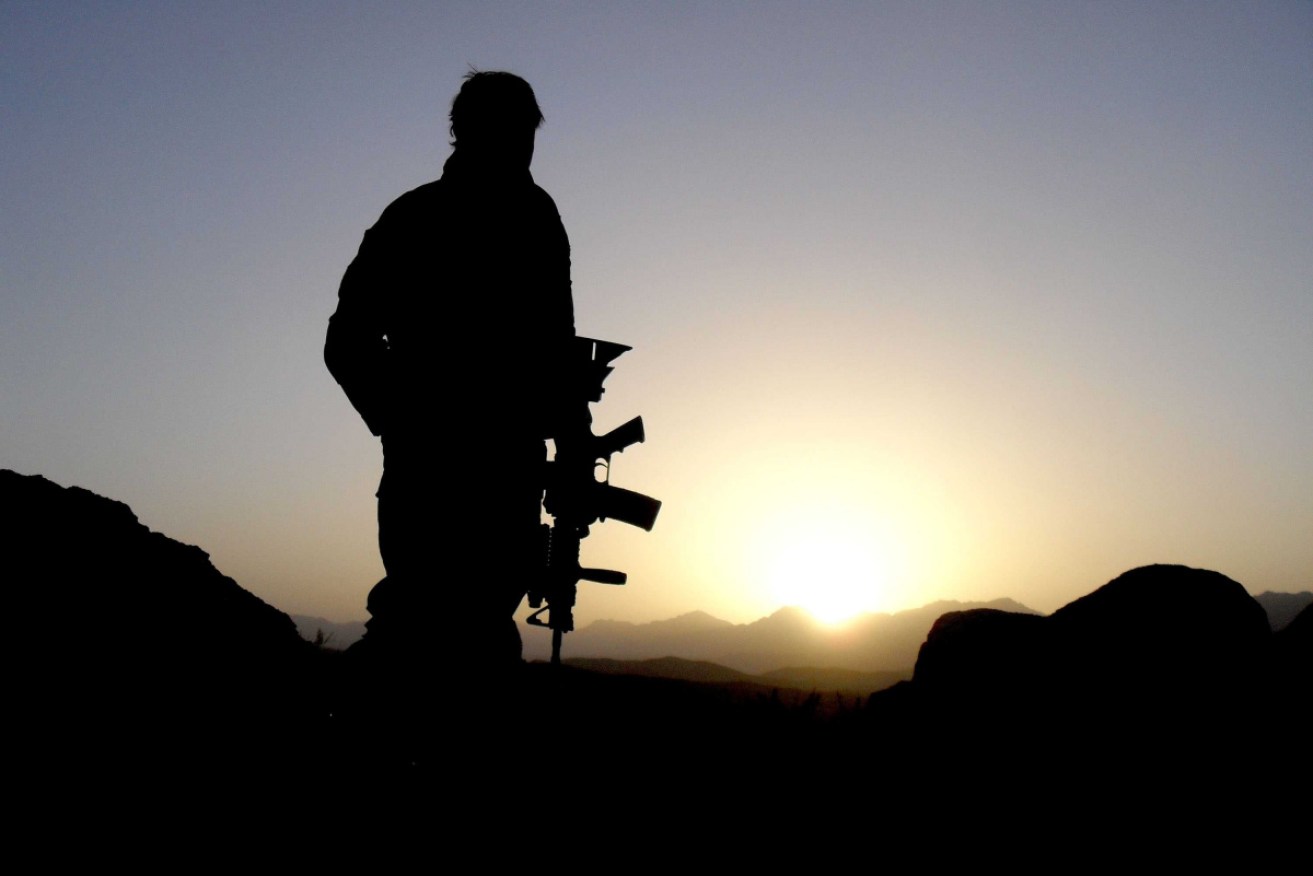Veterans’ suicide royal commission announced after months of campaigning


Veterans aired their opposition to the Veterans Department being a part of a key process in the royal commission. Photo: ABC/ADF
Scott Morrison has announced a royal commission into an epidemic of suicides among Australia’s defence force veterans, after months of resisting a mounting public campaign.
But the government will also forge ahead with its plans for a separate national commissioner into veteran suicides, despite the mechanism being blocked by parliament last year, which the Prime Minister hopes will work “in a complementary way” with the royal commission.
In Sydney on Monday, Mr Morrison said the mental health of returning service members could come at “a far greater cost” than just the costs of conflict.
“When we commit to major deployments, particularly as we’ve seen in Afghanistan and Iraq … we understand what the cost of those deployments can be, in terms of putting those boots on the ground and the planes in the air and the ships to sea,” he said.

Scott Morrison has announced a veterans suicide royal commission. Photo: AAP
“But there is a far greater cost that is borne beyond those deployments and that is the mental toll taken on the veterans after they return… Increasingly, we must also understand the long tail of cost.”
Mr Morrison said he would ask Governor-General David Hurley to convene a royal commission, with the draft terms of reference to be shared on Monday ahead of a four-week consultation period. He expects the royal commission to begin in July and run for up to two years, and will ask state premiers to support the inquiry for a “joint Commonwealth-State royal commission.”
Julie-Ann Finney, whose son David took his own life after serving, has been among the biggest voices of a public campaign for a royal commission. On Monday, she called it “a long time coming”.
“I urge the Prime Minister to ensure the voices of veterans are front and centre in this royal commission. We cannot have the organisations at the centre of a broken system leading this investigation,” Ms Finney said in a statement.
Veterans’ groups, soldiers and families have long pushed for a royal commission, as has Senator Jacqui Lambie and the Labor opposition. But the government has previously rebuffed suggestions of a royal commission, preferring plans for a permanent special commissioner to investigate veterans’ suicide.
More recently, Mr Morrison said the government didn’t oppose a royal commission, after the parliament voted in favour of one.
But the PM said on Monday that he would push on with plans to revive the national commissioner, after failing to get it through the Senate. The government wants the national commissioner to be a permanent body to deal with the suicide issue on an ongoing basis, with Mr Morrison saying it would be a vehicle to implement the royal commission’s final recommendations.
“We will be bringing forward amendments to the bill that is currently before the Parliament to ensure that these two initiatives work together in a complementary way,” Mr Morrison said.
“The royal commission will look at past deaths by suicide, including suspected suicides and lived experience of suicide risks from a systemic point of view, while the national commissioner will have a forward looking role, including overseeing the implementation of the royal commission’s recommendations.”
Former attorney-general Christian Porter said last December the government didn’t want to run a time-limited royal commission and a rolling special commission at the same time, claiming it would be a “massive duplication”. New amendments to the national commissioner’s role, which have not yet been circulated, may look to eliminate such duplication.
Labor’s shadow defence minister, Brendan O’Connor, said the opposition had opposed the national commissioner over concerns it “did not have sufficient independence, did not have the resources and the standing that a Royal Commission has”.
“It is a tragedy that we have seen so many deaths as a result of veterans self harming and suiciding since seeing active service and involved in the ADF. It’s certainly therefore welcomed that the Prime Minister, belatedly, has chosen to make this decision,” Mr O’Connor said.
The announcement came just hours after Defence Minister Peter Dutton, who took over the portfolio in March, again said he was in favour of a royal commission.
Mr Dutton said earlier in April the government wanted “a standing royal commission” into veteran suicides, but he wanted it to run “in concert with a continuing arrangement where families can continue to receive justice.”
In my first speech as a Senator, I called for a Royal Commission into veteran suicide.
It's the end of a long fight. For me, for Julie-Ann, for Karen, for Colleen, for Nikki, for too many to name.
Today's the end of a fight, and the start of a whole new one. #VetsWeForget pic.twitter.com/RNBZUGyTP8
— Jacqui Lambie (@JacquiLambie) April 19, 2021
Senator Lambie has called for a royal commission since 2014, and previously slammed the government’s independent commissioner as “crap”.
“This royal commission is so desperately needed, but it can’t undo the damage that’s been done. It can’t bring back the people we’ve lost. It can’t mend the families who have been broken,” she said on Monday.
“But it will give us a chance to heal. It will give us a chance at closure.
- If you or someone you know needs help, call Lifeline on 131 114, beyondblue on 1300 224 636 or Soldier On Australia on 1300 620 380
-with AAP






